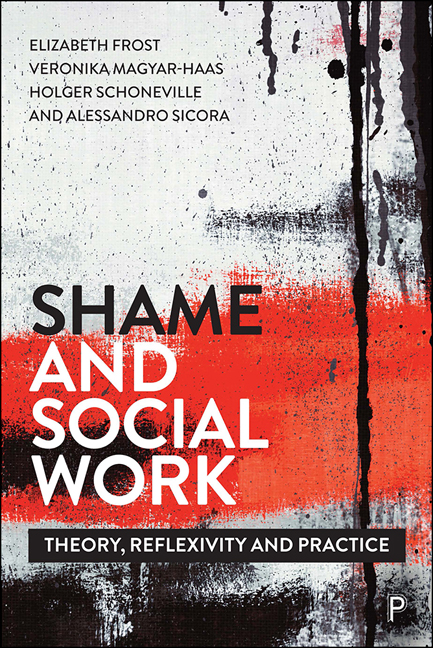3 - Shame as an Anthropological, Historical and Social Emotion
Published online by Cambridge University Press: 10 March 2021
Summary
In his study The Mask of Shame (1981), Léon Wurmser posits that scholars of psychoanalysis have paid insufficient attention to the topic of shame. The work of Thomas J. Scheff (2003) also aligns with this viewpoint, albeit from the perspective of a different discipline: he traces the persistent taboos associated with the phenomenon of shame, and the lack of an explicit attempt to get to grips with the term ‘shame’ in the field of sociological analysis, from a historical and systematic perspective. With reference to Goffman, Elias and psychoanalytic literature, he describes that, for the US in particular, the understanding of shame as a taboo topic is demonstrated in scholarly works either through other terms (such as ‘embarrassment’) being used to refer to the phenomenon, or through the muted reception of studies exploring questions of shame. Scheff makes the reader aware that shame is cloaked in taboo in the modern age, both on a social level and within academic reflections. In light of these discourses, it would be possible to view shame as being openly concealed.
Wurmser's identification of researchers’ disregard for shame is pushed to its limits in the present day: there are now a host of different studies on the topic in the context of psychoanalysis and psychology, while philosophy, sociology and cultural studies have also considered this phenomenon to be a relevant research area over the last twenty years. In the English-speaking world, Scheff's work has contributed just as much to this as the sociological and philosophical studies on emotions published in the German-speaking sphere in the 1990s (Neckel, 1991; Landweer, 1999). The sheer number of recent publications, not to mention conferences, on this subject imply that shame, as a topic, is experiencing a resurgence within academia. Across a broad range of research areas and debates within psychology, theology, history and literature studies, the phenomenon of shame is paired with a variety of concepts, such as guilt, honour, trauma, body, age and poverty, with the ultimate aim of bringing the issue of ‘shame’ into focus and creating a clearer definition of this term.
- Type
- Chapter
- Information
- Shame and Social WorkTheory, Reflexivity and Practice, pp. 55 - 78Publisher: Bristol University PressPrint publication year: 2020



